LATEST INSIGHTS
Your Present Location: LATEST INSIGHTSSuzhou Silk Road Forum 2020 held with the theme of 14th Five-Year Plan and High-Quality Development of Belt and Road
On December 10, 2020, "Suzhou Silk Road Forum 2020: The 14th Five-Year Plan and High-Quality Development of Belt and Road" was held in Suzhou campus of Renmin University of China. The forum was guided by China Public Diplomacy Association, hosted by Suzhou Campus of Renmin University of China and co-organized by Silk Road School of Renmin University of China and Chongyang Institute for Financial Studies of Renmin University of China (RDCY). Former foreign dignitaries, domestic senior officials, experts and scholars, social celebrities, and the Silk Road School students, a total of more than 100 people gathered. The aim was to deeply understand the 14th Five-Year Plan and the development of educational research and think tanks of the Belt and Road Initiative (BRI), launch the strategic cooperation of the BRI international education university alliance, and promote the high-quality development of the BRI education initiative.
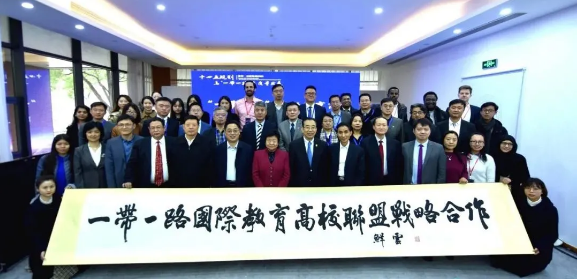
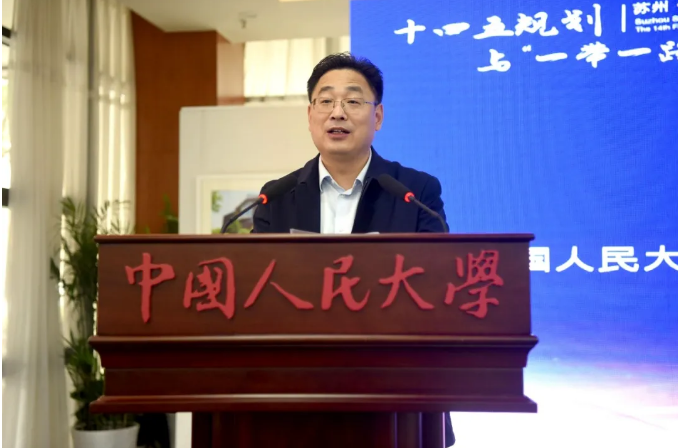
At the opening ceremony, Zhu Xinkai, Vice President of Renmin University of China, Executive Dean of Silk Road School at Renmin University of China, delivered the opening speech. Li Jiugao, Vice Director of Management Committee, Renmin University of China (Suzhou Campus), Dean of School of International Studies, Dean of Sino-French Institute, Vice Dean of Silk Road School, hosted the opening ceremony.
Zhu Xinkai showed welcome and thanks the guests for their presence. In his opinion, under the background of great changes in the past century, it will be an important task for the 14th Five-Year Plan period to jointly build a new development pattern of "dual circulation" and promote high-quality development of BRI. As an international window of Renmin University of China, Suzhou Campus is committed to cultivating modern and international high-end compound talents. The Silk Road School is a key measure for Renmin University of China to actively implement the BRI education action. As the first school to take the name of "Silk Road" in the "Double Tops" universities, Silk Road School has enrolled 158 Chinese and foreign students from 54 countries and regions, such as China, Pakistan and Russia, since its establishment in Suzhou campus in 2018, effectively boosting the high-quality development process of "Belt and Road". He said that there is still a long way to go to promote the stable development of BRI. From the perspective of Silk Road School, three tasks are particularly important: first, the key direction of gathering resources and planning for future development. Second, we should rationally plan and develop the mode of industry-university-research collaborative innovation. The third is to accumulate academic achievements and strengthen the research results of Silk Road School. It is hoped that through the launch of BRI international education university alliance strategic cooperation, the in-depth cooperation with governments, universities, think tanks and social organizations will be strengthened to exchange and compare the latest research results of BRI, organize more academic exchange activities, and jointly promote the construction of the Silk Road academic community.
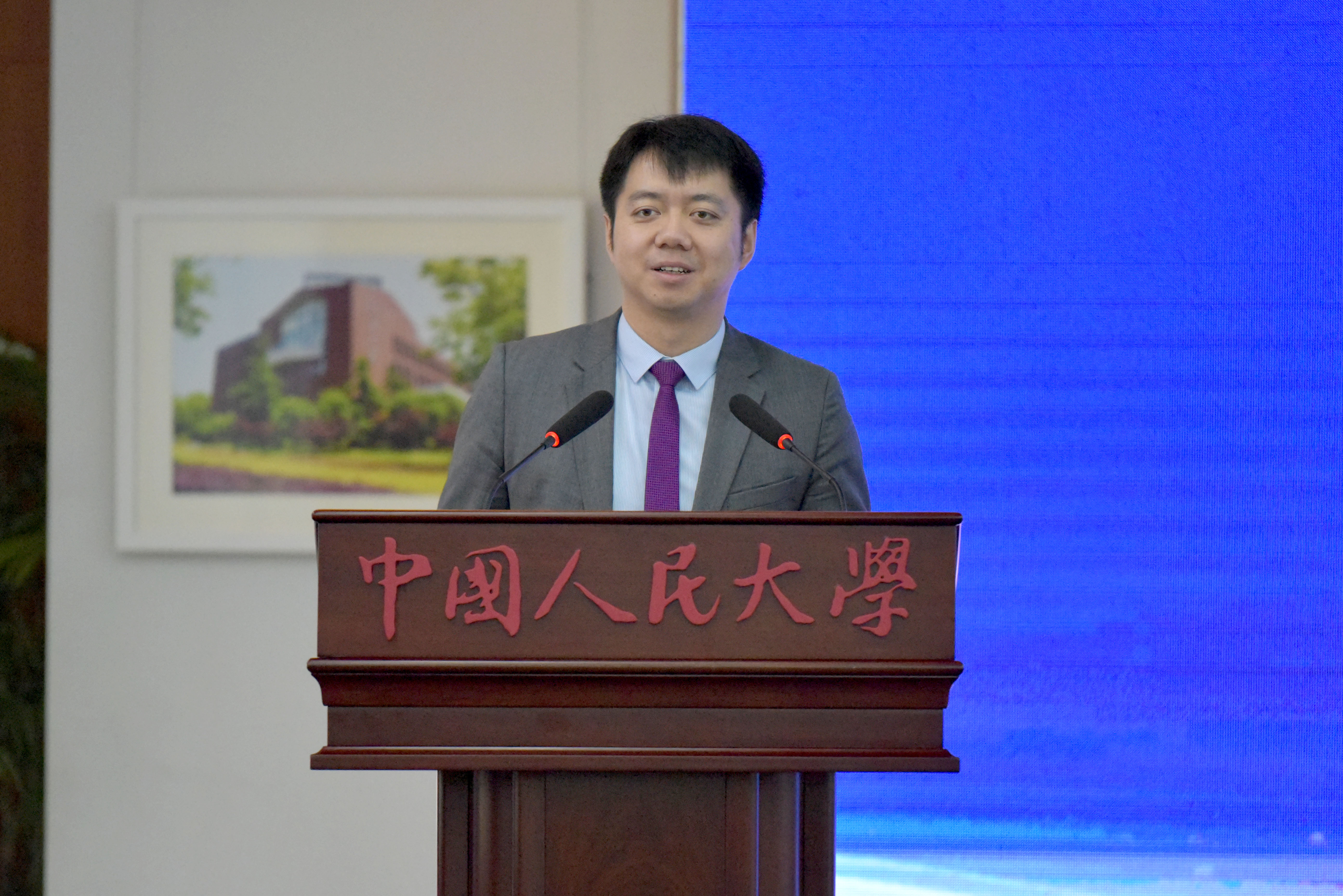
In the keynote speech, Wang Wen, Executive Dean of Chongyang Institute for Financial Studies at Renmin University of China and Deputy Dean of Silk Road School moderated. Former President of Slovenia Danilo Türk and Former Prime Minister of Egypt Essam Sharaf expressed their warm congratulations to the opening of the first Silk Road Forum and delivered keynote speeches via video respectively.
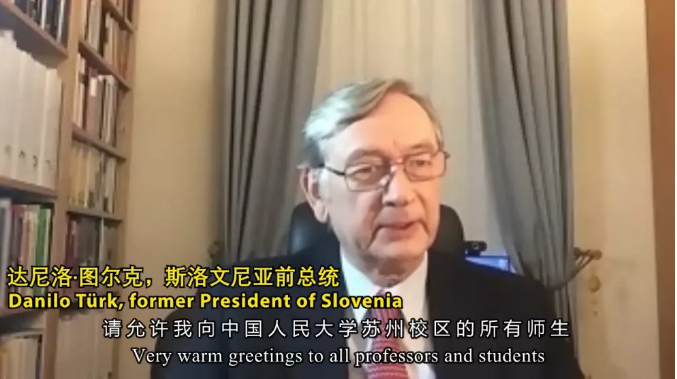
Mr. Danilo Türk believed that China's development has made great contribution to the overall development of the world, and the discussion of the 14th Five-Year Plan and BRI high-quality development is of great significance not only to China but also to the world. Firstly, China has gradually emerged from the impact of the COVID-19 epidemic and will be positioned as a leader capable of making an effective contribution to the world in the post-epidemic era. Secondly, the new pattern of "dual circulation" development is expected to transform China from a "world factory" to a "world market". The 14th Five-Year Plan will generate strong impetus for global change, and the new development of all countries in the world will get benefits from China's high-quality development. Thirdly, the 14th Five-Year Plan points the way to a green and low-carbon economy, and China's contribution in this regard will help the world avoid the threat of a global warming disaster. Fourthly, the emphasis of the 14th Five-Year Plan on poverty alleviation through consumption and rural revitalization will provide valuable experience for global poverty eradication. Fifthly, the 14th Five-Year Plan will provide new opportunities for cooperation along the New Silk Road and a new era of opportunities for global development.
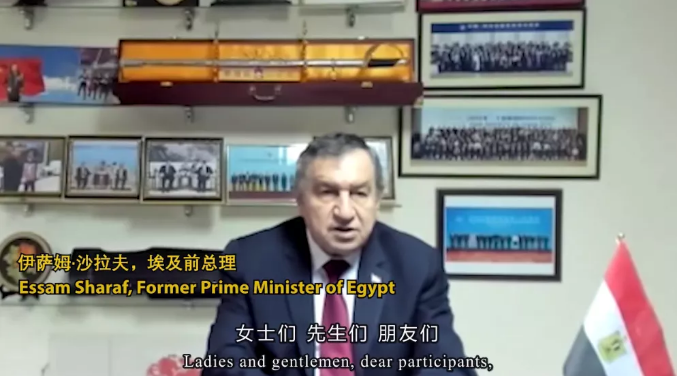
Mr. Essam Sharaf believed that the key to the 14th Five-Year Plan is the "Dual Circulation" development model with domestic development as the main body and domestic and international mutual promotion. He made it clear that the view that China is only focused on its domestic economy and domestic market, with little regard for the outside world, is entirely wrong. He believed that the BRI is a link between China and the world, which is based on multilateralism and the vision of a community of a shared future for mankind. In fact, for global development, the inner cycle and the outer cycle are interconnected. Promote high-quality cooperation and greater global development through hard and soft connectivity. He said that cooperation based on the spirit of "Consultation, Contribution and Shared Benefits " and multilateralism is an important pillar of global development. Global cooperation requires different cooperation platforms. The Belt and Road forum for international cooperation and regional dialogue are particularly important. Global cooperation requires cooperation initiatives such as the Green Silk Road, the Digital Silk Road and the Health Silk Road. BRI global high-quality development can only be achieved through cooperation pillars, platforms and initiatives.
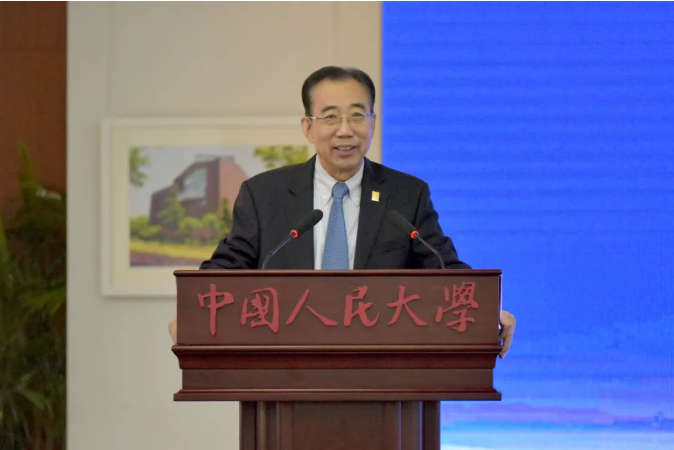
Later, Wu Hailong, President of China Public Diplomacy Association, delivered an important keynote speech at the forum. He said that the core of promoting BRI high-quality development is to do a good job in the five links, and the focus is to promote people-to-people exchanges. This is a long-term task that requires continuous efforts. In the face of people's misunderstandings and misgivings about the BRI, we need to be patient, careful and thorough in our work to increase trust and dispel misgivings. We need to get the facts straight and set the record straight in order to discredit the interference and discredit of external forces. In recent years, the China Public Diplomacy Association has held many influential and meaningful activities in various forms, making positive contributions to enhancing the people-to-people ties between China and the countries along the "Belt and Road". Wu pointed out that to build a high-quality "Belt and Road", we need to promote high-quality public diplomacy. Government, society, enterprises, think tanks and university departments, such as various areas to strengthen the consciousness of public diplomacy, public diplomacy innovation, enriching the connotation of the public diplomacy, in the spring breeze of the rain, coming softly, trying to speak good Chinese story and friendly cooperation both in domestic and international level, to promote and create a good external environment for high-quality development.
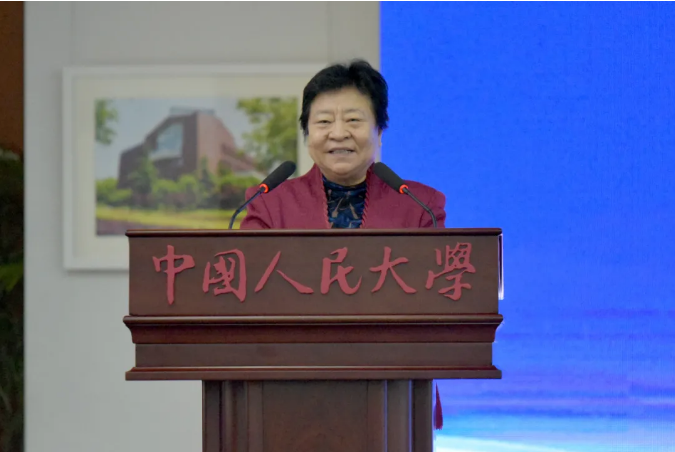
Zhang Yanling, Former Vice President of Bank of China and senior fellow of RDCY, said that the 14th Five-Year Plan proposes to promote the high-quality development of BRI, which requires think tanks along the RBI countries to provide more operable and practical guidance literature, as well as universities along the route, such as the Silk Road School, to give full play to their comprehensive advantages and train future construction talents. To promote the BRI high-quality development, she pointed three suggestions: firstly, strengthen the construction of legal system. We will establish a new trade and investment regime and work on the details to provide policy advice on creating a world-class business environment. Secondly, engage to the implement as soon as possible. Bring into play the advantages of BRI facilities connectivity, break bottlenecks and promote the promotion of experience in promoting economic growth in countries along the Belt and Road. At the same time, we will accelerate the improvement of cross-border e-commerce business cooperation standards and promote the use of RMB along the RBI countries. Thirdly, we need to protect the BRI financial security. The internationalization of RMB and the application of digital finance share the achievements of digital economy and fintech with BRI countries. To create a new normal of digital finance and guide the rational planning, efficient allocation and maximum utilization of Belt and Road resources is the main content of the next stage of work. To participate in all relevant parties, it is necessary to re-understand and plan comprehensively.
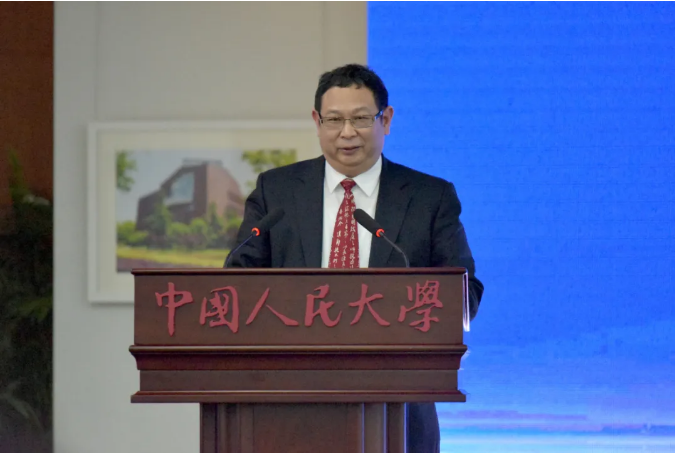
Yang Xiaochun, Deputy Director of the Center for Sino-Foreign Cultural Exchanges, Ministry of Education, reviewed the development process of the construction of BRI, also honest analysis of the problems and challenges in constructing the BRI, especially about the lack of talent, in the face of misunderstanding, smear and insufficient response capacity of sludge, etc. These problems are generally a weak link in people-to-people and cultural exchanges. Cultural and people-to-people exchanges are important way to enhance people-to-people friendship between China and other countries and consolidate the foundation of public support for state-to-state relations. He stressed that the BRI should be promoted in line with the concept of people-to-people and cultural exchanges. Think tanks have an important responsibility and mission in promoting people-to-people exchanges to serve the BRI and the building of a community of a shared future for mankind. Firstly, we should learn to see the world and other countries with our own eyes as advisers for Belt and Road cooperation. Secondly, we should strengthen the research on people-to-people exchanges in Belt and Road international cooperation and be a facilitator of people-to-people exchanges. Thirdly, we should use the discourse system that the world can understand to tell the Chinese story as the guide of discourse ability.
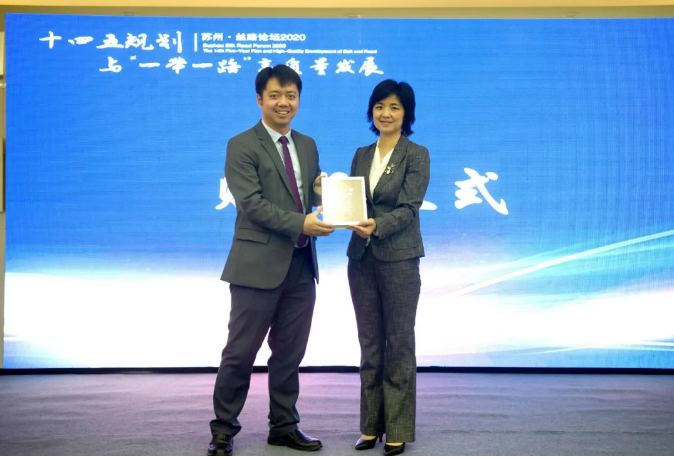
After the keynote speech, Wang Wen, Executive Dean of RDCY, Deputy Dean of Silk Road School at Renmin University of China, presented a series of books and reports of RDCY to Jiang Xiaoli, in order to not only enrich the books resources for the teachers and students in Silk Road School, but also provided more paths for them to have a deeper understanding of the construction process of BRI and the cutting-edge research results. RDCY presented a series of books and report including “‘Belt and Road’ Encyclopedia”, “A New Era of Eurasia: Sino-Russia Think Tank Joint Research on the New Increments of Joint Rejuvenation”, “New Silk Road and New Pattern-Chinese Wisdom for Global Governance Reform”, “Report on People-to-people Connectivity along the Belt and Road”, “Green Finance and the Belt and Road”, “Seven Years of the Belt and Road Initiative: Open up a New Phase for High-quality Development”, “Sailing to the South -- Opportunities and Challenges for China and Pacific Island Countries to Build the ‘Belt and Road’", “Digital Belt and Road: Progress, Challenges and Practical Solutions”, “Constructing the Belt and Road Studies:the Theoretical Origins of Global Silk Road School and the Call of the Times”, “Heading for Europe,Going North: Research on Sino-Russian Joint Construction of the Pivot Ports along the ‘Silk Road on Ice’”. The ceremony was chaired by Yang Qingqing, Assistant Dean of RDCY and Assistant Dean of Silk Road School of Renmin University of China.
Later, Wang Wen announced the "Suzhou Silk Road Forum Joint Initiative", and launched the ceremony of "Belt and Road" strategic cooperation of international education university alliance. Through this initiative, we will promote inter-school exchanges, exchange educational ideas, share educational resources and carry out educational cooperation among countries along the Belt and Road under different cultural backgrounds. Through the think tank platform of universities and colleges, we will promote cultural exchanges, enhance connectivity, enhance mutual learning among civilizations, jointly build a BRI community of higher education, and promote international cooperation among educational institutions of countries along the belt and road.
On the afternoon of December 10, the first Silk Road Forum set up two sessions of expert discussions on the 14th five-year Plan to promote the high-quality development of the Belt and Road, and the education research and think tank development of the Belt and Road.
In panel 1 of "The 14th Five-Year Plan promotes high-quality development of BRI", Pan Qingzhong, Executive Vice Dean, Schwarzman College, Tsinghua University, started from the experience of participating in the Silk Road Forum and shared his understanding of risk control, governance structure and integration in the high-quality development of BRI. Zhang Jianping, Director of the Research Center for Regional Economic Cooperation under the Ministry of Commerce, stressed building a green Silk Road, promoting green global value chain, and achieving carbon emission targets and carbon neutrality. Song Luzheng, Researcher of China Institute at Fudan University, viewed the high-quality development of "Belt and Road" from a European perspective based on his observations in the past 20 years. Sun Jingxin, Director of the Communications Center, Academy of Contemporary China World Studies, shared how to rise against the trend and tell the stories of "14th Five-Year Plan" and "Belt and Road". Zhou Shuqin, Director of Institute of Social Development, Nanjing Academy of Social Sciences, Deputy Director of Development Research Center of Jiangsu Provincial Government Research Office, shared his thoughts on BRI and digital new infrastructure and industry digitization. Liu Zongyi, Secretary-general of the Research Center for China-South Asia Cooperation at Shanghai Institutes for International Studies, emphasized how to promote the high-quality construction of BRI in South Asia and the Indian Ocean under the new development pattern of "Dual Circulation".
In panel 2 of "Belt and Road" Educational Research and Think Tank Development, Huang Renwei, Executive Vice Dean of Fudan Institute of Belt and Road & Global Governance, focused on discussing "Belt and Road" international think tank cooperation mode path choice; Zhou Xiaojing, Former Director, Institute of Asian-African Studies, Development Research Center of The State Council, proposed to actively promote joint opening-up and share new opportunities of "Belt and Road" construction. Wang Xingping, Professor of School of Architecture at Southeast University, Deputy Dean of the Institute of Socialist Development with Chinese Characteristics, Southeast University, shared the ideas and achievements of urban and rural planning and education community construction along the BRI. Ma Lirong, Director of Institute of Silk Road Strategy Studies at Shanghai International Studies University, mainly introduces the research results of silk road science and the construction of the silk road academic community in the BRI construction. Jia Min, Research Associate, Institute of International Relations and Regional Development at East China Normal University, talked about the opportunities and risks faced by "Belt and Road" in the era of competition and cooperation between China and the United States. Li Renying, Deputy Secretary General, Belt and Road Association for Science and Technology, and Director of Azerbaijan Belt and Road Research Center, introduced the cooperation between the Caucasus region and BRI.
The expert discussion was moderated over by Jiang Xiaoli, Vice Dean of Silk Road School, Vice Dean of School of International Studies, Renmin University of China. 12 experts and scholars had a warm exchange and discussion with more than 40 Chinese and foreign students in the Silk Road School.
Please Find us : Facebook: RDCYINST Twitter: RDCYINST LinkedIn: 人大重阳RDCY Instagram:rdcyinst























































































 京公网安备 11010802037854号
京公网安备 11010802037854号





